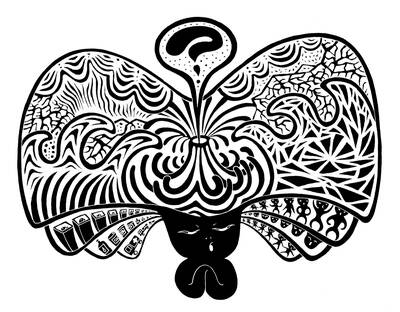During the local COVID-19 outbreak, everyone in Taiwan has been asked to stay at home or work from home for the majority of the time.
This was tolerable at first, but as the soft lockdown goes on, people have started to go a little stir crazy, and some might even be starting to panic after watching news reports about the outbreak.
The government raised the COVID-19 alert to level 3 in May, and has repeatedly extended it. Amid such special circumstances, there are things we can do to take care of our mental and physical health while helping to keep COVID-19 at bay.
Many housewives and working women are under increased pressure to prepare three meals per day, in addition to looking after their children.
To help ease this stress,
they could adopt a “shop less, buy more” strategy, and purchase prepared meals through group orders or online to reduce the frequency of cooking at home or going grocery shopping.
With the number of COVID-19 cases declining, people can visit local restaurants for takeout, so the establishments can at least make some money to pay their employees.
For clothing, not being able to go shopping for new things to wear could be inconvenient for some people, as they are being denied a channel through which they can let off steam. I have seized this period as an opportunity to “declutter” my closet, and have found some beautiful dresses that had been tucked away, but can be worn again.
Casual dress is acceptable when working from home, but that does not mean we can neglect personal hygiene. We need to keep our appearances respectable, after all. When taking part in a videoconference, dress formally just for the sake of keeping a sense of ritual and having the feeling of working from the office.
Then there is public transportation. Prepare shopping lists and routes before leaving the house to reduce the time spent outdoors and the number of places visited.
The only problem for me is that I have not visited my parents in nearly three months. Luckily, it is rather convenient for us to contact each other over the phone or through video calls. Even my mother, who did not know how to make video calls before the level 3 alert, now waits for my calls at about 7pm every day.
Finally, there is leisure. With successful disease prevention efforts in the past year until May’s outbreak, the domestic tourism industry had been booming since overseas travel was unavailable.
As this wave of COVID-19 was erupting in Taiwan, the public stayed at home, but more people are going out after shutting themselves indoors for a while.
However, at a time when most Taiwanese are not vaccinated, crowded gatherings at scenic areas could be dangerous once the government lowers the COVID-19 alert to level 2. Under such circumstances, there should be “crowd control” at tourist spots.
I prefer to go to places that have with fewer people, or go for a ride by myself. There is a park near my home in Tainan, and when I see from my apartment that there are not too many people there, I go for a round of power walking to get in some moderately intense aerobic exercise.
It is also an opportunity
to get some sun to boost my vitamin D intake, which is also a good way to prevent COVID-19, as it helps the immune system.
Cho Chiung-yu is an associate professor at National Cheng Kung University’s Department of Physical Therapy.
Translated by Eddy Chang

Labubu, an elf-like plush toy with pointy ears and nine serrated teeth, has become a global sensation, worn by celebrities including Rihanna and Dua Lipa. These dolls are sold out in stores from Singapore to London; a human-sized version recently fetched a whopping US$150,000 at an auction in Beijing. With all the social media buzz, it is worth asking if we are witnessing the rise of a new-age collectible, or whether Labubu is a mere fad destined to fade. Investors certainly want to know. Pop Mart International Group Ltd, the Chinese manufacturer behind this trendy toy, has rallied 178 percent

Life as we know it will probably not come to an end in Japan this weekend, but what if it does? That is the question consuming a disaster-prone country ahead of a widely spread prediction of disaster that one comic book suggests would occur tomorrow. The Future I Saw, a manga by Ryo Tatsuki about her purported ability to see the future in dreams, was first published in 1999. It would have faded into obscurity, but for the mention of a tsunami and the cover that read “Major disaster in March 2011.” Years later, when the most powerful earthquake ever
My youngest son attends a university in Taipei. Throughout the past two years, whenever I have brought him his luggage or picked him up for the end of a semester or the start of a break, I have stayed at a hotel near his campus. In doing so, I have noticed a strange phenomenon: The hotel’s TV contained an unusual number of Chinese channels, filled with accents that would make a person feel as if they are in China. It is quite exhausting. A few days ago, while staying in the hotel, I found that of the 50 available TV channels,
There is no such thing as a “silicon shield.” This trope has gained traction in the world of Taiwanese news, likely with the best intentions. Anything that breaks the China-controlled narrative that Taiwan is doomed to be conquered is welcome, but after observing its rise in recent months, I now believe that the “silicon shield” is a myth — one that is ultimately working against Taiwan. The basic silicon shield idea is that the world, particularly the US, would rush to defend Taiwan against a Chinese invasion because they do not want Beijing to seize the nation’s vital and unique chip industry. However,